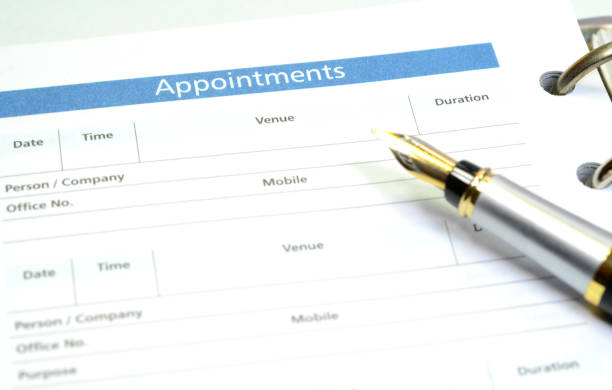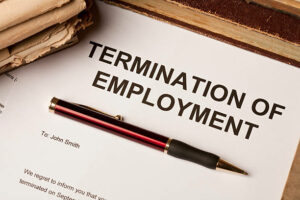
Late lodgment of claims, ie unfair dismissals and general protection applications
This has been discussed by us time and time again. (other cases you can click on at the end of this article). Why 21 days to lodge?. There is not alot of logic to it. Its been out to 60 days to lodge and as low as 14 days. It’s in my view no more than a mechimism to control the amount of claims that are processed by the Fair Work Commission. It’s 6 years to lodge a civil claim so say 60 days to lodge a claim is not burdensome on the Fair work system. It would mean however the Goverment would have to fund the Fair Work Commission better. The goverment simply does not want to do that.
So we have got what we’ve got, so we have to work within the Fair Work Act, which is strict on the 21 day rule. Lets have a look at several cases and revisit the rules and circumstances considered if you lodge a claim late amd is it still worthwhile lodging.
Casual dismissed for showing students inappropriate video
A school employee has argued to the Fair Work Commission that she was discriminated against by her employer because she was a casual. However, the school argued that she was dismissed for showing an inappropriate video to students. This general protections case was further complicated by the fact that the employee lodged her claim 61 days late.
In this article, we look at the events of this case – Cecilia Liao v Canberra Grammar School [2023]. And we outline the rules around late submissions of her general protections claim.
Casual teacher alleges discrimination, employer cites contract violation
The casual school employee, Cecilia Liao, alleged that she had been unfairly dismissed by Canberra Grammar School. She argued to the Fair Work Commission that her dismissal occurred on 12 May 2023. Ms Liao contended that was when the school had told her that she would no longer be offered casual work. In addition to her claims of unfair dismissal, Ms Liao alleged discrimination based on her casual employment status. She also argued to the Fair Work Commission that the terms of her employment contract were unjust.

Teacher files general protections claim 61 days late
A key issue in this case is that Ms Liao says that she was dismissed from her casual employment on 12 May 2023. However, she did not lodge her general protections claim with the Fair Work Commission until 2 August 2023. This was well beyond the 21-day time limit from the date of dismissal that the Fair Work Commission sets for general protections claims.
Only in exceptional circumstances will the Fair Work Commission grant a time extension to an employees who submits their claim late. Ms Liao argued that her general protections claim was delayed because she wanted to make a bullying complaint to Canberra Grammer School. However, the school told her that she could not as she was no longer employed there.
Ms Liao also claimed that she did not have knowledge of the 21-day time limit for general protections claims. She also argued that Canberra Grammer School failed to adhere to its own procedures to deal with her complaints. She said that her general protections claim was delayed because she was waiting for a response from the school. Ms Liao said that she exchanged about 40 emails with the school relating to her bullying complaint.

‘The China threat:’ School contends that the teacher shared inappropriate video
Canberra Grammer School argued to the Fair Work Commission that Ms Liao was not dismissed because she was a casual. The school contended that her employment was on an ad hoc basis. Ms Liao was a casual relief teacher who would work for the school on occasion. The school pointed to Ms Liao’s employment contract, which states that her employment ceased at the end of every engagement.
On top of this, Canberra Grammer School argued to the Fair Work Commission that Ms Liao had violated the terms of her casual contract. The school said that she had shown Mandarin speaking students about a minute of a video of former Prime Minister Paul Keating. In the video, Mr Keating speaks about ‘the China threat.’ The school argued that this was a valid reason not to continue hiring Ms Liao on an ad hoc casual basis.

School argues the teacher had no reason to submit general protections claim late
Canberra Grammer School did not believe Ms Liao had been discriminated against and that she had violated her casual contract. And the school felt that these facts were moot given that Ms Liao had submitted her general protections claim so late. It argued to the Fair Work Commission that Ms Liao’s claim should be dismissed on jurisdictional grounds. That is, because Ms Liao had not been prevented from lodging her claim due to exceptional circumstances.
Ms Liao claimed that she had been delayed in making her general protections claim because she was waiting on Canberra Grammer School to address her bullying complaint. However, the school told the Fair Work Commission that it had attempted to set up a meeting with Ms Liao. But she had declined the meeting invite. The school also argued that individuals in similar situations who sent numerous post-dismissal emails would not have waited for responses before initiating proceedings.
Fair Work Commission considers casual worker’s general protections claim
The key factor the Fair Work Commission had to consider was whether Ms Liao had a legitimate reason for her late general protections claim. In its final decision, the Fair Work Commission expressed empathy for Ms Liao’s grievances and her belief that her bullying complaint was mishandled. However, it was ultimately found that there were no exceptional circumstances to warrant an extension of the statutory time limit for her claim.
The Fair Work Commission acknowledged that the merits of the case could not be conclusively determined at this stage. This was because of the contested facts and the complexities of the issues at hand. The Fair Work Commission therefore concluded that the circumstances surrounding Ms Liao’s case were not sufficiently extraordinary or unique to constitute exceptional circumstances. Consequently, her general protections claim was dismissed.

Navigating the 21-day deadline for general protections and unfair dismissal claims
The Fair Work Act 2009 outlines specific timeframes for lodging general protections and unfair dismissal claims with the Fair Work Commission. This 21-day deadline, although seemingly straightforward, comes with its own set of intricacies and considerations. Here we explore the critical aspects of this timeframe and what it means for both employees and employers.
21-day deadline explained
The Fair Work Act 2009 states that an unfair dismissal or general protections claim must be lodged with the Fair Work Commission within 21 days after the dismissal takes effect. It is important to note that this 21-day period does not include the date on which the dismissal occurred. In other words, the countdown begins on the day following the dismissal.
If you are making a general protections claim that does not involve a dismissal, you have up to six years to lodge from the date of your adverse action. This is a different claim that requires filling out an F8C Form. A general protections claim with dismissal requires filling out the F8 Form.
Exceptions to the rule
It is very important to understand that the Fair Work Commission will only allow for time extension for lodgement only under exceptional circumstances. And it is very rare that an employee is found to have been delayed by exceptional circumstances. Exceptional circumstances are defined as situations that are out of the ordinary, unusual, special or uncommon. These circumstances need not be unique but must differ significantly from typical situations.

Reasons for delay
When an employee seeks for a time extension for their unfair dismissal or general protections claim, the Fair Work Commission evaluates various factors:
1. Reasons for the delay
The primary factor considered is the reason for the delay. An applicant must provide a credible explanation for the entire delay. The absence of an explanation for any part of the delay may work against the applicant. You have to almost give a day by day account of why there was a delay.
2. Ignorance of timeframe
Ignorance of the unfair dismissal and general protections 21-day timeframe is not considered an exceptional circumstance. Employees are expected to be aware of this limitation. This is unfair, but thats the rules. The thinking is if your going to challenge your claim you will immediatly do it.

3. Representative error
If the delay is due to an error on the part of a representative, such as a legal advisor or union, it may be grounds for an extension. However, whether the employee contributed to the delay plays a pivotal role in this decision. you must keep on whoever’s back you have told to lodge the claim and make sure they do it. If they don’t, then you can demonstrate to the FWC you did everything you could to instuct and get the claim lodged.
4. Prejudice to the employer
The Fair Work Commission also considers whether the delay would cause prejudice to the employer. It will take into account the impact of the delay on the employer’s position. Employer argue staff have left, records destroyed, memeries have faded.
5. Action taken to dispute the dismissal
The Fair Work Commission assesses whether the former employee took any actions to dispute the dismissal during the delay. did you challenge the dismissal directly with the employer etc
6. Merits of the application
The strength and merits of the application are taken into account. But they are not the sole determinant of whether an extension should be granted. FWC will not grant a extension if the claim is weak or doomed to failure. They see no point is accepting or listing it to only turn it down latter.

Weekends and public holidays
It’s essential to be aware of how weekends and public holidays affect the 21-day deadline. If the final day of the 21-day period falls on a weekend or a public holiday when the Fair Work Commission is closed, the deadline is extended to the next business day. However, public holidays or weekends occurring during the 21 days do not change the overall period for lodgement. For clarity, its 21 days. Not 21 days from when you got your pay or 21 days from when you received your termination letter.
Practical considerations
To meet the 21-day deadline, there are several practical considerations for employees. These include:- Sending documents electronically: The Fair Work Commission encourages sending documents by email. And for certain applications, online forms are available for quicker submissions. – Posting documents: When posting an application or document, ensure it arrives at the Fair Work Commission by the deadline. Delays caused by postal or courier services are not accepted as excuses for missing the deadline. – Faxing documents: If using fax, the application must be sent no later than the deadline.
Casual employee submits general protections claim late due to admin error
A recent general protections case that involved a casual worker seeking an extension of time for a late application is Mr Mark Cavanagh v Kg Services Australia Pty Ltd [2023]. The case highlights the importance of accurate record-keeping and the Fair Work Commission’s discretion in considering exceptional circumstances when extending claim deadlines.
Mark Cavanagh, the applicant in this case, had a history of casual employment with KG Services Australia Pty Ltd that included a break. In September 2022, Mr Cavanagh received a casual letter of engagement, which stated that his employment would commence either on 7 November 2022, or upon the commencement of employment, whichever was earlier. Unfortunately, he was dismissed from his casual employment by KG Services Australia on 18 May 2023.

Employee makes mistake when lodging Fair Work Commission claim
The next day, Mr Cavanagh lodged an unfair dismissal claim with the Fair Work Commission. However in the claim, he mistakenly stated that his employment had commenced on 21 October 2022. In its response to the unfair dismissal claim, KG Services Australia argued to the Fair Work Commission that it should be rejected on jurisdictional grounds. The company argued that Mr Cavanagh’s actual start date was 22 November 2022.
This meant that Mr Cavanagh did not meet the minimum employment period to be eligible to make an unfair dismissal claim. Namely, six months of casual employment with KG Services Australia. At this point, the company also told Mr Cavanagh’s that his dismissal was primarily due to his poor attendance.
Employee admits mistake, lodges general protections claim
After being informed of KG Services Australia’s objection to his unfair dismissal claim, Mr Cavanagh responded. This revelation led him to realise his mistake regarding his employment start date. He promptly sought clarification from KG Services Australia. He inquired about his letter of engagement that he received on 30 September 2022. This letter stated that his start date was 7 November 2022, which would mean that he met the minimum six-months of employment.
On 15 June 2023, Mr Cavanagh filed a general protections application with the Fair Work Commission. In the claim, he stated that his casual employment started on 22 November 2023. However, this general protections claim was lodged 18 days after the 21-day deadline from his dismissal. Mr Cavanagh argued to the Fair Work Commission that he should be given a time extension. This was because it was only on 26 June 2023 that he learned of his true start date.

Fair Work Commission grants general protections time extension
The Fair Work Commission accepted Mr Cavanagh’s explanation for the delay. It accepted that he genuinely believed his casual employment start date was 21 October 2022. And that he only discovered the true date on 15 June 2023, after KG Services Australia provided evidence. The Fair Work Commission found this reason credible. It ruled that Mr Cavanagh had taken steps to dispute his dismissal immediately after his dismissal, favouring an extension.
Additionally, the Fair Work Commission determined that Mr Cavanagh’s claim was not without merit. In his general protections claim, he alleged that he was unfairly dismissed due to illness. And that KG Services Australia discriminated against him based on disability. The merits of the case weighed slightly in favour of granting the extension. Given the credible reasons why Ms Cavanagh filed his general protections claim late, the Fair Work Commission granted him a time extension. The claim was therefore allowed to proceed.

Conclusion to: Claims and late Lodgements
Our team at A Whole New Approach can help simplify the process of making an unfair dismissal or general protections claim. AWNA are not lawyers, we are one of the nations leading representatives, advisors and workplace commentators. We are highly experienced in navigating the complex terrain of the Fair Work Commission. Our track record spans over three decades, having assisted more than 16,000 Australian employees to seek justice via the Fair Work Commission.
All adverse action issues or redundancy concerns call us now We offer a no-win, no-fee service, ensuring that you have nothing to lose and everything to gain. Plus, your initial consultation with us is absolutely free.
For a confidential discussion about your situation, contact us today at 1800 333 666.






